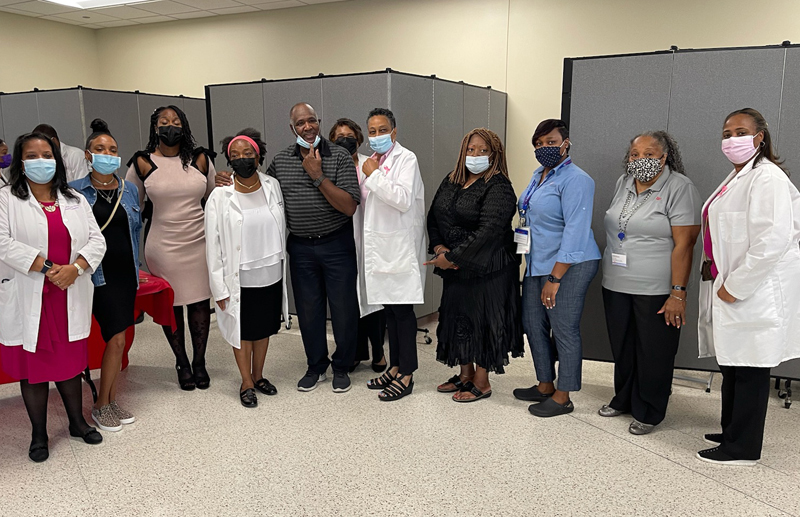CHICAGO (RNS) — Pastors and other church leaders have learned a host of lessons during the COVID-19 pandemic: how to stream video, preach to a crowd whose faces are masked and take drive-in confessions.
Many have also learned a new commandment.
Thou shalt not talk about vaccines.
Fewer than half of churchgoers say their clergy (44%) have spoken about vaccines, according to a survey by Pew Research. That includes just over a third (39%) who have encouraged people to get vaccines and a small number (5%) who have discouraged people from doing so. Those numbers drop for evangelical clergy, with 21% encouraging vaccines and 4% discouraging them.
One exception: historically Black churches, where two-thirds of churchgoers say pastors have encouraged their people to get vaccines. And some have even led their churches to set up on-site vaccine clinics.
A pastor and a physician, Bishop Horace Smith of Apostolic Faith Church in Chicago’s Bronzeville neighborhood, a prominent, predominantly Black congregation, feels an obligation to care for his people, physically and spiritually.
Early in the pandemic, Smith knew that vaccines would play an essential role in fighting COVID-19. Without vaccines, the toll from the disease could become astronomical, said Smith, an attending physician specializing in pediatric hematology and oncology at Ann & Robert H. Lurie Children’s Hospital of Chicago.
“There is no modality in medicine that has saved more lives and prevented more diseases than vaccines,” he said.
Smith said officials made some mistakes early on early when it came to COVID-19 vaccines. For example, he said, naming the vaccine initiative “Operation Warp Speed” was unfortunate.
“I think that threw some people off, because people think you are cutting corners,” he said.

Bishop Horace Smith, center left, of Apostolic Faith Church in partnership with Walgreens in Chicago. Courtesy photo
Smith said he began talking to his congregation about vaccines before they were available. He worked with other local pastors to encourage church members to sign up for vaccine trials, knowing that those trials would help researchers know if the vaccines were effective for different ethnic groups. That was especially important, he said, given how hard COVID-19 hit communities of color.
Smith also worked hard to reassure people that vaccines were trustworthy. Just telling people they should get vaccinated was not enough, he said.

